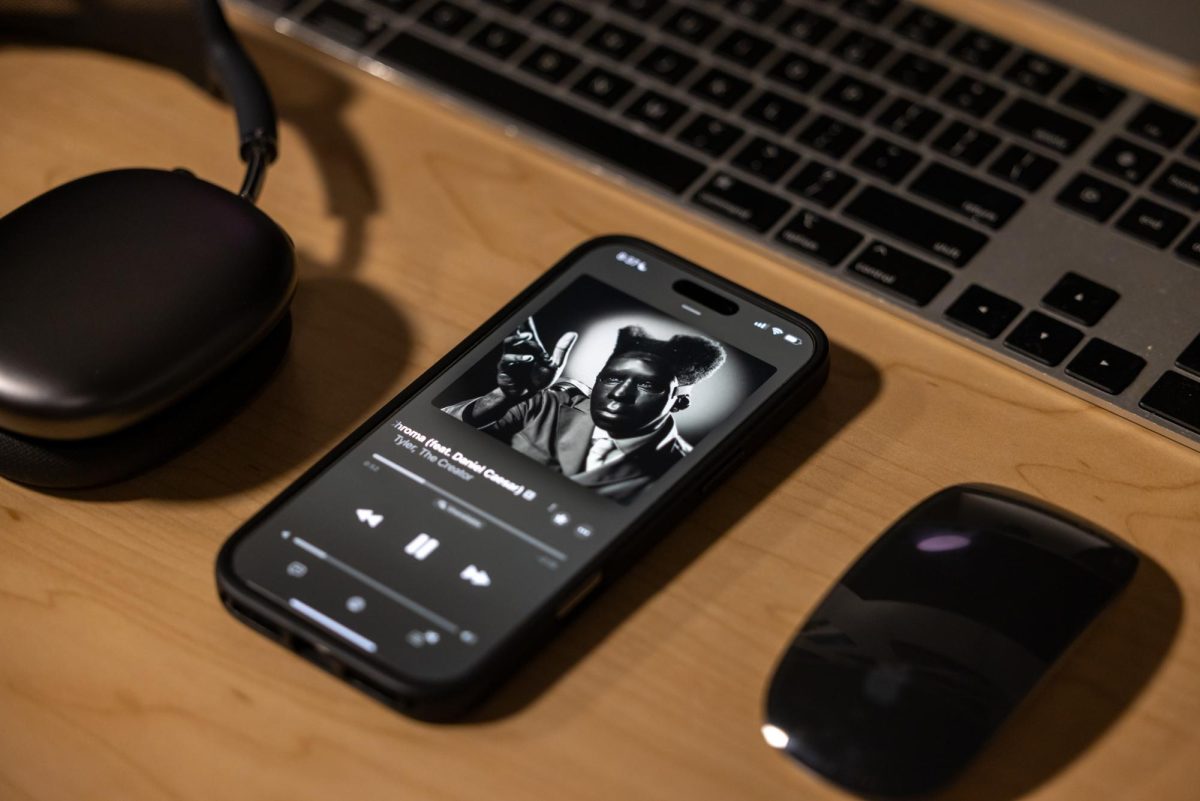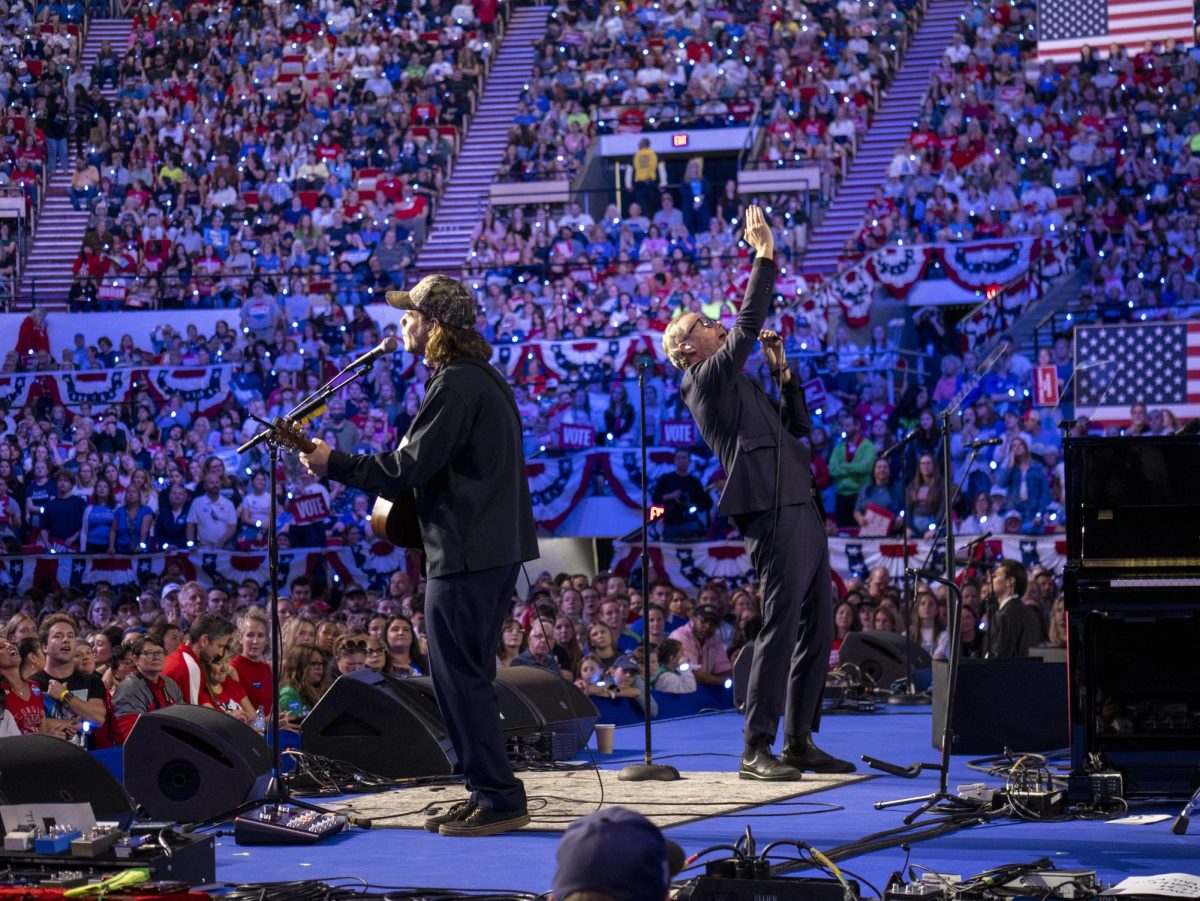[media-credit name=’Def Jam’ align=’alignnone’ width=’648′] [/media-credit]
[/media-credit]
Many of our biggest pop stars seem to spring up out of nowhere. Stefani Germanotta was just another New York girl trying to break into the music industry before she was Lady Gaga. Katy Perry flashed into existence right after she kissed a girl (and liked it). Even Justin Timberlake, despite his sordid past, was a soulful revelation once he shed his boy-band trappings.
Not so for Kanye West. With every album he’s put out we’ve been able to learn more about where he came from and who he is. On The College Dropout we learned about his soaring ambition, his crippling insecurities and his musical history up to that point, thanks to a 12 minute autobiographical track. On Late Registration we saw that person validated by fame and success, and the resulting music was larger, more grandiose, while still maintaining the same likeable persona. Graduation continued the progression, with soaring pop hooks, daring samples and lyrical content that made it clear that West was starting to recognize that there is a downside to being famous. And finally 808’s and Heartbreaks on which West channeled personal tragedy into a hugely influential, minimalist robotic epic.
His new opus, My Beautiful Dark Twisted Fantasy melds the musical and lyrical ideas of the preceding four albums into one grandiloquent, epic statement. And boy oh boy, it is fantastic.
Take opening track “Dark Fantasy,” for example. West has co-producer credit on every track on the album, but a RZA assist on this beat helps it achieve a gritty solidity that contrasts perfectly with a chorus on which a soaring choir harmonizes the question “Can we get much higher”? The answer, as suggested by the verses on the song and indeed, the rest of the album is “No.” Nicki Minaj introducing the song and album in a fake British accent (which belongs to the part of her personality she calls “Roman”) is strictly a bonus.
Minaj is also present on another of the album’s biggest songs, “Monster,” the title of which is a self-fulfilling prophecy. She owns the song, trash-talking for a full minute and 20 seconds, which for those keeping score is a good deal longer than Jay-Z gets and about twelve times longer than Rick Ross.
The amount of time spent on this discourse is incredibly bold for West, giving a relative newcomer so much time on one of the biggest songs on his album. This makes it all the more impressive that Minaj comes through; when ‘Ye pulls everything but the drums out from under her during her last few bars the effect is jaw-dropping, emphasizing a verse that will be a career highlight no matter what Minaj does next.
West’s ability to use the artists that he enlists on this album is noteworthy throughout. “All of the Lights” which develops on the theme of “Flashing Lights” has no less than eleven guests on it. And yet the track works, with uplifting verses from West himself, and choruses done justice by Rihanna, Charlie Wilson, The-Dream and Elton John, amongst others. Although the guest list might seem like overkill, it’s actually perfectly fitting for a song that’s all about the grandiosity of fame.
On the second half of the album, these huge pop constructions give way to darker material. It’s not often that you see a pop star being as honest as West- radio single “Runaway” is nine minutes long here, and constitutes some serious, ugly material on West’s inability to understand women. For the casual listener, the song is a celebration of d-baggery, but further listening reveals large insecurities that we’ve always known West to have, inflated by fame. “Devil in a New Dress” and “Blame Game” are similarly honest (and brutal), the former reminiscent of early West chipmunk soul, the latter relying on an Aphex Twin sample. Both are infused with the coldness that West learned to pull off on 808’s and Heartbreaks.
Critics have complained of this album being too large, that it’s overwrought, that maybe he should shorten the song lengths. Yet one of the elements that music critics search for in every album is development; if an artist’s sophomore effort sounds the same as their first, the artist is often marked down. Artists who can escape this fate tend to be chameleons; masters of reinvention like Bowie or Madonna.
And yet West manages to develop both musically and lyrically on every album, without changing who he is or what he believes in. No wonder the songs are so long. On what other pop album is there a song both sampling and featuring Bon Iver, which turns a forlorn indie jam into a kind of bittersweet, apocalyptic dance song, (album closer “Lost in the World”)? What’s even more marvelous is that the song sounds good.
In these Girl Talk times, an artist who can take disparate musical elements and instead of just mashing them together can subtly combine them in ways we’ve never seen before should be appreciated not scorned. On My Beautiful Dark Twisted Fantasy, West uses his persona and experience to make something we’ve never seen before: A bombastic pop explosion that is one of his best albums and a contender for album of the year.
4.5 out of 5 stars













